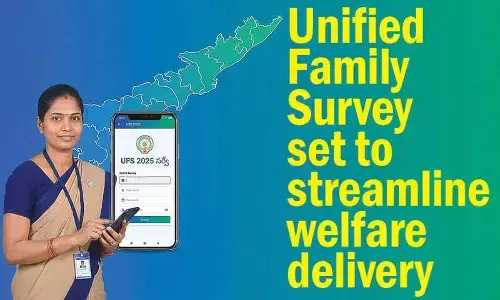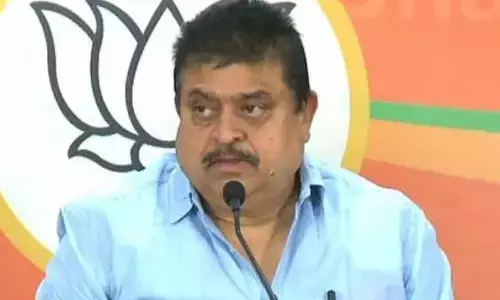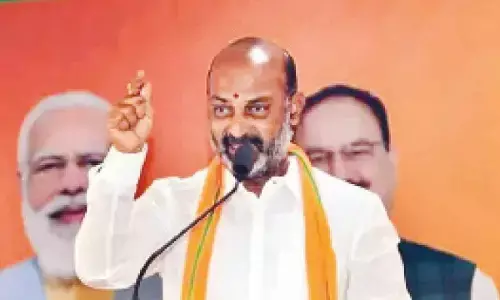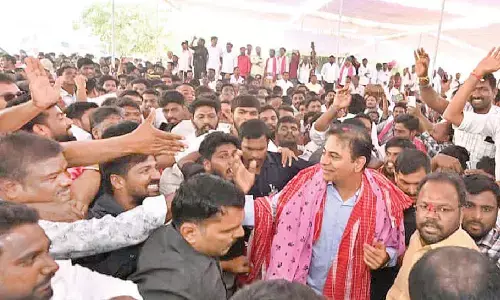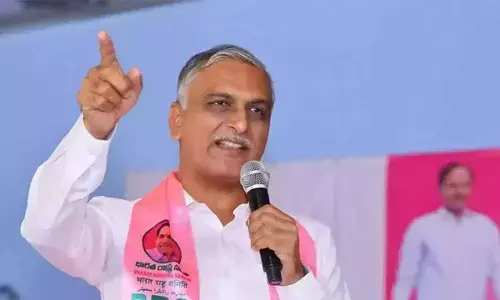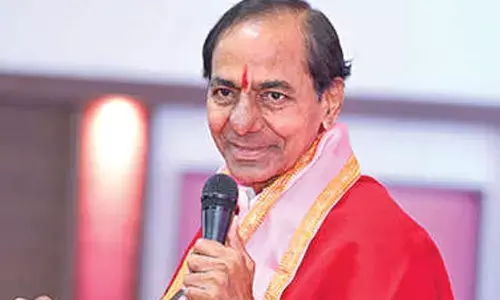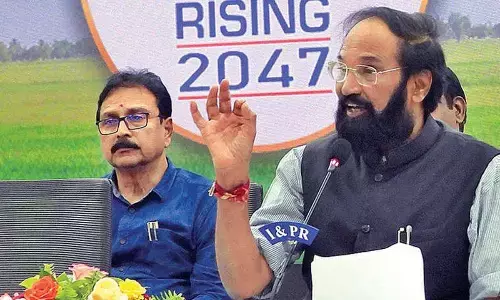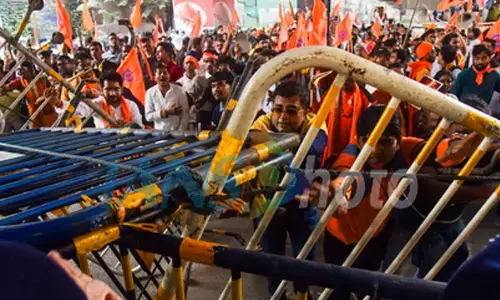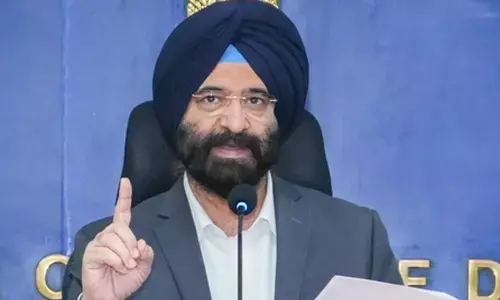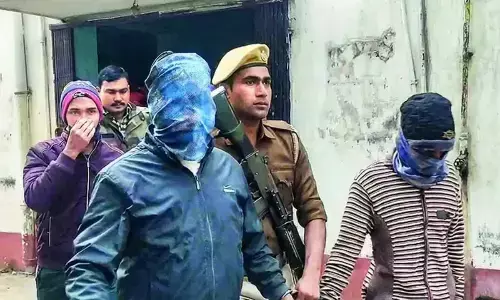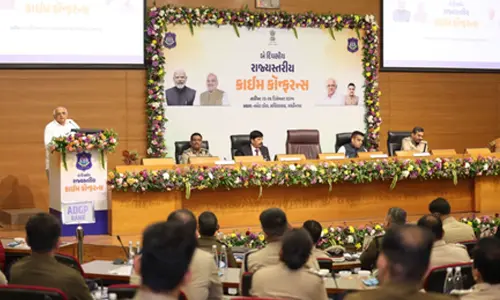Muddling Kashmir issue
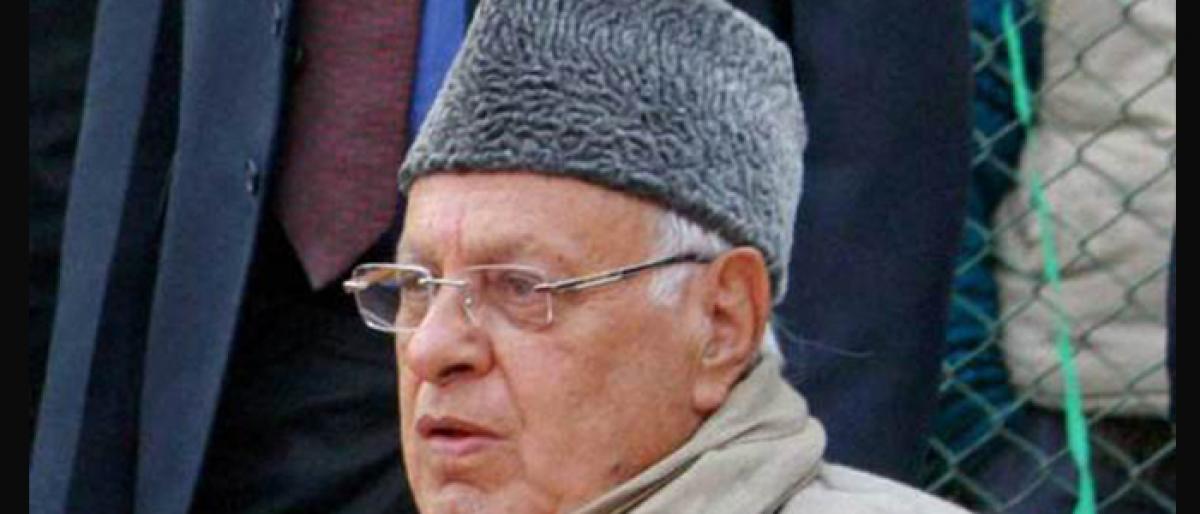
National Conference leader Farooq Abdullah, as usual, came out with his own understanding of the Kashmiri situation and offered a solution, asking India and Pakistan to remain content with the part of Kashmir they each have. Is that really as simple as that? What did he think he was representing when he spoke thus? Ordinary Kashmiris? National Conference? Indians? Sunni-dominated Valley segment? O
National Conference leader Farooq Abdullah, as usual, came out with his own understanding of the Kashmiri situation and offered a solution, asking India and Pakistan to remain content with the part of Kashmir they each have. Is that really as simple as that? What did he think he was representing when he spoke thus? Ordinary Kashmiris? National Conference? Indians? Sunni-dominated Valley segment? Or the entire Jammu and Kashmiris? Pakistanis? Or the population of the PoK? Because, the opinion is not uniform. Above all, he should also explain whether the Pakistanis accept the same as a solution.
However, pragmatic it may sound to say so, the Abdullahs who are very much part of the society as well as its problem should know that Kashmir issue is more complex than it sounds. What exactly is the Kashmir issue all about? Even as the debate rages on this, it should be kept in mind that when India took the issue to the UN, it was very categorical in saying that it was seeking a debate on it in the Security Council whose documents require considerable research for one to understand unlike as in case of the General Assembly documents. India presented the case under Article 35 of the Charter of the United Nations.
This meant that India did go there with a request for action against the aggression in the Kashmir situation. It only took the situation to the Security Council but not a dispute. It was no dispute about territory that was taken to it as the late Krishna Menon rightly put. Because there was no territorial dispute and Kashmir was India's. He had also left no room for ambiguity in emphasising that if it were a dispute about territory, then the Security Council would be incompetent to deal with it because that would be either a political or juridical question, and the Chapter VI or VII of the Charter of Security Council would only deal with questions of international peace and security.
Hence, it was a situation, a Kashmir situation, that was brought before the Council and not a dispute. That is the crux of the Kashmiri question. Pakistan is an aggressor. So, when India went to the UN Security Council, it followed the basic principles of international law and behaviour and sought equity with clean hands. Former Prime Minister of Pakistan Zafrulla Khan during the early days of the Kashmir dispute argued that Pakistan had entered into a standstill agreement with Kashmir with regard to her communications, supplies and post office and Telegraphic arrangements. That is all. He produced telegrams as proof of the same.
However, Kashmir had standstill agreements with Union of India "on all matters on which these exist at present moment with outgoing British Indian Government.” It was further suggested that existing arrangements should continue pending settlement of details and formal execution of fresh agreements which in effect meant the use of Indian forces if there was internal rebellion in one of the States. Period. Kashmir's agreement with India is clear. Farooq Abdulla should either brush his history knowledge or his language skills.








